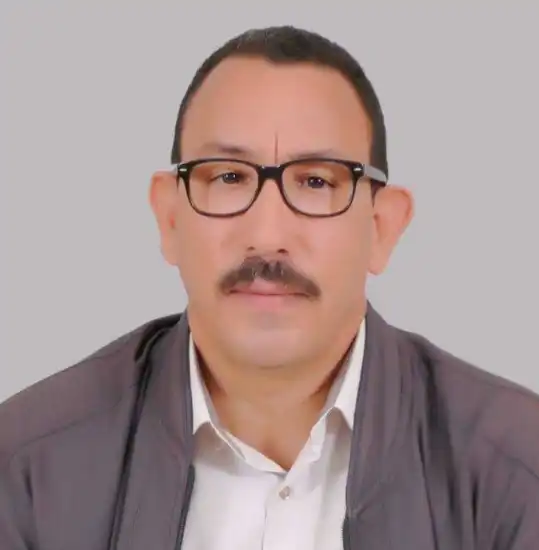In the need for popular recognition and respect for the Amazigh and the Amazigh language

After two weeks of in-depth training, and after the end of the summer vacation for the 2002/2003 academic year, hundreds of professors returned to their workplaces with a new mission: teaching the Amazigh language to Moroccan students in the nation’s schools.
During September 2003, after decades of prohibition, Amazigh teachers will have the right to write history on the blackboards of the nation’s schools using their Tifinagh alphabet, and for the first time Moroccan students will receive language lessons from the most ancient languages in the world. The feeling of joy was great among those who were looking forward to a historical moment, “A pyramid for it.” Many.”

I was among those who advanced in the ranks. I received training, which has another success story in Guelmim. I inaugurated my new mission at Al-Masirah Al-Khadra School in Boujdour. After a few days, the necks of those charged with various tendencies will open, and they will begin to express their position of rejection of what they call “the Shala.”
One morning at work, as soon as I started my day, I heard a knock on the classroom door. I opened it and found a mother:
- Peace be upon you, Professor
- Peace be upon you
- You are reading the song to my son
- Yes
- My son does not want him to read the song
- Firstly, I did not call it the song, I named it. Amazigh, secondly, I am here, not an employee, as if I were implementing the policy of the state. You are going to go to Peru, where the director saw the door. You are not with you. Walk to the prosecution. You are not with you. Walk to the academy. You are not with you. Walk to the ministry. You are not having tea. You are going to write to the king. And you say why I didn't want my son to read Amazigh. He was the one who decided to teach us Amazigh to our children and created an official institution in the center of Rabat with a written name called Tifinagh.

She lowered her head and walked away...
During the first years of my responsibility for teaching the Amazigh language, I used to receive a few tiptoe visits from this type, from simple people whose brains were filled with various types of tendencies, including the tendency to hate, despise, and belittle the Amazigh and the Amazigh language. At the same time, I noticed the great response of the innocent students to a language that settled in their subconscious. And in their hearts, and the evidence is spread on YouTube, for parents of non-speaking students from different regions, I shed tears as I respond to their requests to copy dictionaries and supports, male and female citizens are surprised at how their children master Tifinagh in record times before the Arabic letter and the Latin letter, their tongues speak smoothly in Amazigh in a few weeks, they liberate They produce Tamazight before Arabic and French, the two school languages that consume a lot of effort and money.
Moroccans, regardless of their geographical affiliations, their locations and responsibilities, and the languages of their mothers... are invited today, thirteen years after Amazigh was recognized as an official language for Moroccans alongside Arabic, twenty-three years after the highest authority in the country recognized the linguistic and cultural reality of Moroccans, after two and a half decades of the tireless work of all... The authorities are trying to give the Amazigh language its rightful place, after more than two decades of effort to correct many clichés that only perpetuated the emotional distance of Moroccans from their wonderful homeland, Morocco, to acknowledge that they are pure Moroccans, neither Easterners nor Westerners, to accept us as we are, their brothers, and to accept themselves. Morocco is as it is: a wonderful country whose people speak Amazigh in its various variants, colloquial and Hassani, and whose genes, tongues and facial features bear the imprints of their ancestors, including the Amazigh and Amazigh, even if they do not speak it today... All of them are called to accept their country as it is, not as they dream or as some have tried to portray it to them, so they exclude their inclinations. And the various ideas and beliefs they were charged with that belittle the homeland and the people of the homeland. Whenever you peel one of us away, you will only find Amazighs, as was said.

Al-Tayeb Amkrod
What is painful is that a number of us continue to belittle the Amazigh language, culture, identity, and rights, despite its constitutionality, and despite the fact that the highest authority in the country has given it the position it deserves for twenty-three years, so that some who reject the Amazigh language and take all means for this, even if necessary, continue to fabricate excuses. And fabricating justifications as do the Wahhabi mediators, and those who delve into the monstrosity of the homeland’s toponymy to resemble homelands that do not exist except in their imaginations... All of these, and many others who continue not to accept us and our Amazigh, are called to respect the Amazigh and the Amazigh in all its manifestations, and to be convinced that they are and that it is a part of them and an essential component of Their being, their identity, their culture, and their civilization, and that it is a part of them and they are a part of it, and an extension of them and they are an extension of it, so they acknowledge a truth that some have always tried to deny: the Amazighness of Morocco and all of North Africa.
Source : websites

